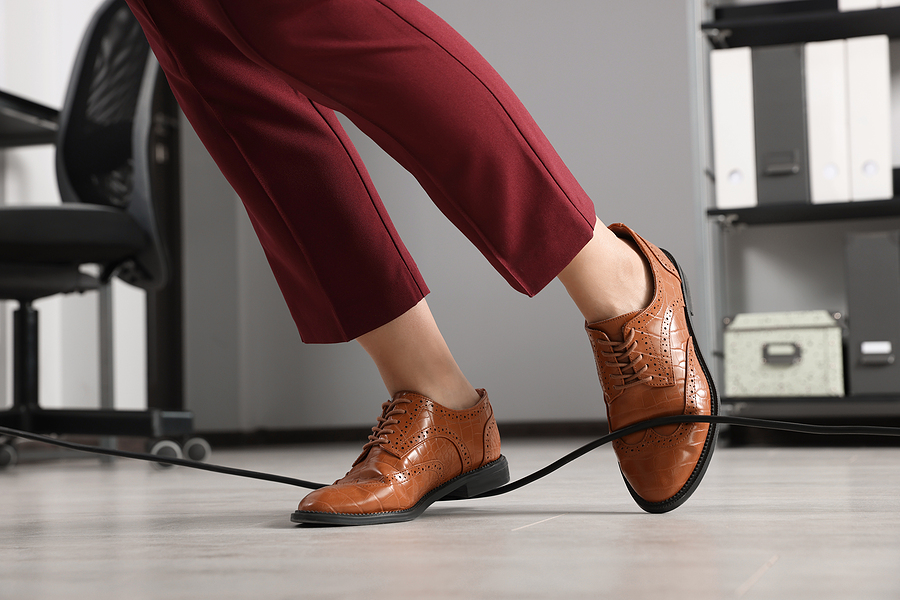Understanding Responsibility in Florida Premises Injury Cases

When someone is hurt on another person’s property, questions naturally come up about who should be held responsible. Whether the injury happened in a grocery store, a hotel, a friend’s apartment complex, or even a public park, Florida law allows people to seek compensation through what’s known as a premises liability claim. But before that can happen, one thing must be clearly established — legal liability.
Understanding how liability works in these cases can help you better protect your rights, especially if you’re dealing with medical bills, time off work, or physical pain after an accident in Orlando. This guide breaks down what it means to establish liability in a premises liability case, how fault is determined, and what evidence can make or break your claim.
What Premises Liability Means in Florida
Premises liability is the legal concept that property owners — or people who control a property — have a responsibility to maintain reasonably safe conditions for visitors. This includes businesses, landlords, and in some cases, government agencies. If someone is injured because of a dangerous condition that should have been addressed or warned about, the injured person may have a legal right to seek damages.
However, just being hurt on someone’s property doesn’t automatically make the owner legally responsible. Florida law requires proof that the property owner’s negligence directly led to the accident.
Visitor Status and Why It Matters
Not all visitors are treated the same under the law. In Florida, the level of care a property owner owes you depends on your legal status while on the property:
-
Invitees are people who are invited onto the property for business purposes, like customers in a store. Owners owe invitees the highest duty of care and must regularly inspect for hazards.
-
Licensees are social guests or people allowed on the property for non-business reasons. Property owners must warn licensees about known dangers.
-
Trespassers generally aren’t owed much protection, but there are exceptions, especially when children are involved.
Understanding your status helps determine whether the property owner’s actions (or lack of action) failed to meet their legal obligations.
Proving a Property Owner Failed in Their Duty
To win a premises liability case, you need to show more than just that you were injured on the property. You must demonstrate that:
-
A hazardous condition existed.
-
The property owner knew — or should have known — about it.
-
They failed to fix it or provide an adequate warning.
-
That failure directly caused your injury.
These steps are key to establishing liability. It’s not enough to say there was a spill or loose handrail. You’ll need evidence that the condition was dangerous, foreseeable, and preventable.
Types of Evidence That Support a Claim
Proving liability usually comes down to documentation and testimony. Some of the most useful evidence includes:
-
Photographs or videos taken at the scene, especially immediately after the accident.
-
Incident reports filed with store or property management.
-
Medical records that link the injury to the accident.
-
Witness statements from others who saw what happened or noticed the dangerous condition.
-
Surveillance footage, if available.
In some cases, building codes or inspection reports can show that the property wasn’t up to standard. For example, if a stairwell lacked proper lighting or handrails, and that contributed to a fall, it may point to negligence.
The Role of Notice in Proving Liability
Florida courts often look at whether the property owner had “notice” of the hazard. There are two types:
-
Actual notice, meaning they knew about the danger.
-
Constructive notice, meaning the condition existed long enough that they should have known about it through reasonable care.
For instance, if someone slips on a wet floor in a grocery store and the spill had been there for over an hour with no warning sign, the store may be found to have had constructive notice and failed in their duty.
Comparative Fault Can Impact Your Case
Florida follows a modified comparative fault system. If you’re found partially responsible for your injuries — such as by texting while walking or ignoring posted warnings — your compensation may be reduced. If you’re more than 50% at fault, you may not be able to recover damages at all.
Because of this, defendants often try to argue that the injured person was careless. A strong case includes not only proof of the hazard but also evidence that you acted responsibly at the time of the accident.
Common Types of Premises Liability Cases in Orlando
While every case is different, many claims fall into one of these categories:
-
Slip and fall accidents, often caused by spills, loose rugs, or uneven surfaces.
-
Trip and falls, involving things like broken sidewalks or exposed wiring.
-
Negligent security, when lack of security measures leads to assaults or theft.
-
Swimming pool accidents, especially when safety gates or covers are missing.
-
Falling objects, such as merchandise in poorly stacked store displays.
In tourist-heavy cities like Orlando, where commercial and rental properties are everywhere, these types of incidents are not uncommon.
Filing a Claim Within Florida’s Time Limits
Florida law limits the time you have to file a premises liability lawsuit. This is known as the statute of limitations. As of recent legal changes, you generally have two years from the date of the injury to file your claim.
If you miss this deadline, your case will likely be dismissed — even if you have strong evidence. That’s why it’s important to speak with a personal injury attorney as soon as possible.
Why Legal Guidance Matters
Premises liability cases can be more complicated than they seem. Property owners and insurance companies often deny responsibility or argue that you were to blame. Having an experienced Orlando personal injury attorney on your side can help level the playing field.
Your attorney can gather evidence, build a timeline, and communicate with the other side on your behalf. More importantly, they can help ensure you understand your rights and options throughout the process.
Conclusion
Establishing legal responsibility in a premises liability case in Orlando takes more than just pointing a finger. You must be able to show that the property owner was negligent and that their failure to act caused your injury. By knowing your rights, documenting everything, and working with a legal professional, you can improve your chances of holding the right party accountable and receiving fair compensation.
If you’ve been hurt on someone else’s property, don’t assume your case is too minor or too complicated. Reach out to a trusted injury attorney who understands Florida law and can guide you through your next steps.

 Call Us Today - It's Free
Call Us Today - It's Free